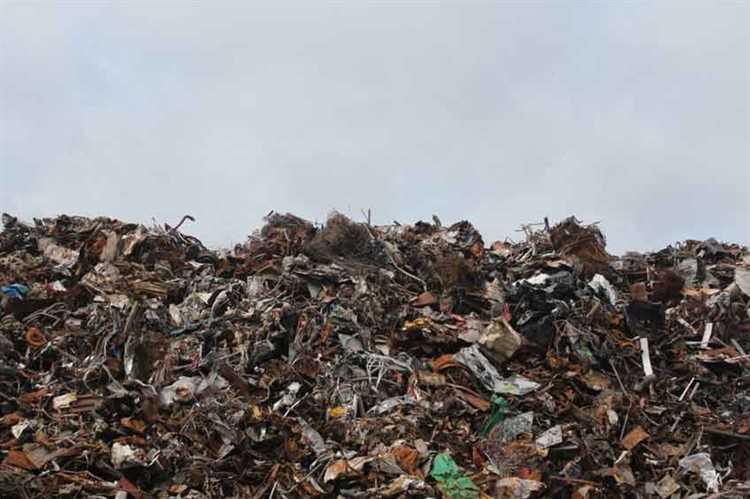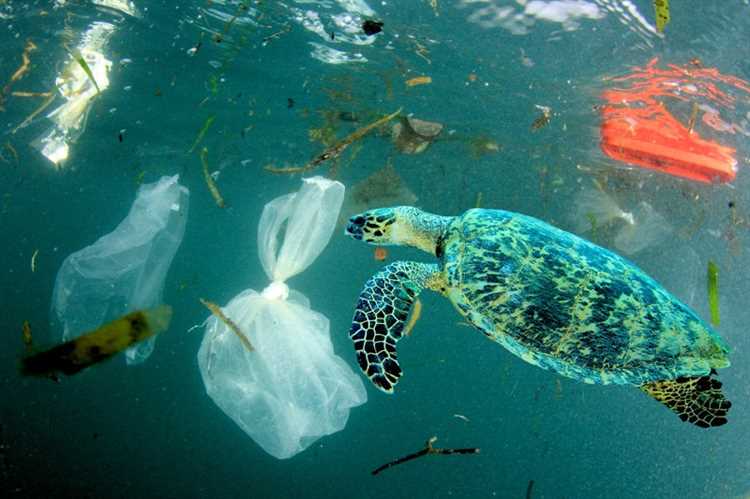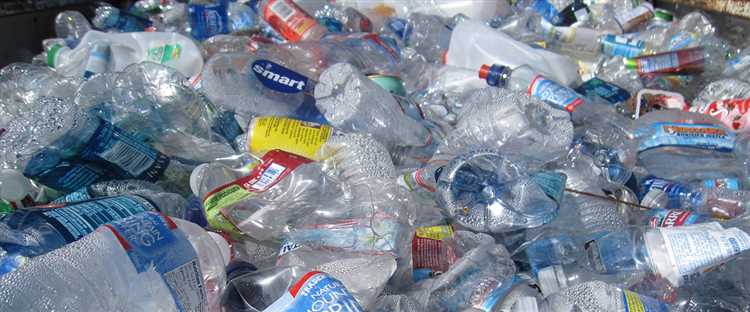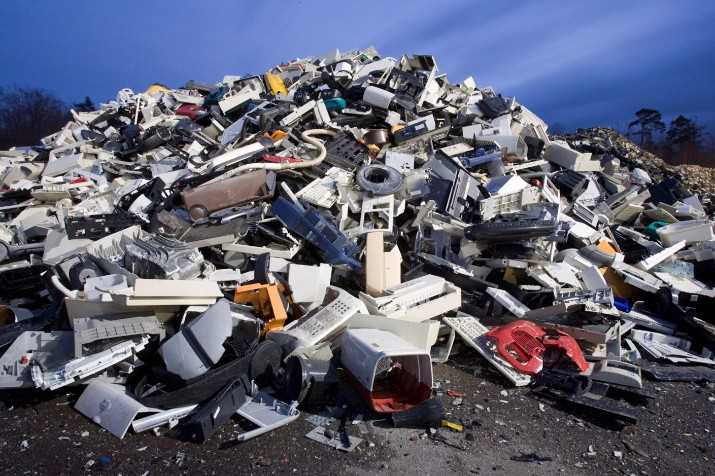
Recycling has become an essential practice in the modern world. It not only helps to reduce waste but also contributes to conserving resources and protecting the environment. However, there are still many individuals and communities that do not participate in recycling programs. The consequences of not recycling can be dire, affecting not only the present but also the future generations.
One of the most significant consequences of not recycling is the depletion of natural resources. Many of the materials we use in our daily lives, such as paper, plastic, and metal, are made from scarce resources like trees, crude oil, and ores. When these resources are not recycled, they need to be extracted anew from the Earth’s crust, leading to further environmental damage and resource depletion.
Not recycling also contributes to increasing levels of pollution. When waste is not properly disposed of, it often ends up in landfills or incinerators. Landfills release harmful greenhouse gases into the atmosphere, contributing to climate change. Incinerators release toxic pollutants that can contaminate the air, soil, and water, posing serious health risks to both humans and wildlife.
- The Importance of Recycling and Its Consequences
- Environmental Pollution and Depletion of Natural Resources
- Impact on Wildlife
- Long-Term Effects
- Harmful Effects on Wildlife and Ecosystems
- Increased Energy Consumption and Greenhouse Gas Emissions
- Landfill Overload and Soil Contamination
- Health Risks for Humans
- Economic Implications and Waste Management Costs
- Conclusion
- Question-answer:
- What are the consequences of not recycling?
- How does not recycling contribute to pollution?
- Why is it important to recycle?
- Is not recycling economically damaging?
- How can individuals help mitigate the consequences of not recycling?
- What are the consequences of not recycling?
- How does not recycling affect the environment?
The Importance of Recycling and Its Consequences
Recycling is a crucial practice that plays a significant role in preserving our environment and ensuring a sustainable future for generations to come. By recycling materials such as plastic, paper, glass, and metal, we can reduce the amount of waste that goes into landfills and conserve valuable resources.
One of the key benefits of recycling is the conservation of energy. When we recycle materials, we save energy that would have been used in the extraction and manufacturing process of new products. For example, recycling aluminum cans requires up to 95% less energy than producing new ones from raw materials. This energy saving not only reduces greenhouse gas emissions but also helps to combat climate change.
In addition to energy conservation, recycling also helps to reduce pollution. When waste materials are disposed of in landfills, they can release harmful chemicals and greenhouse gases into the atmosphere as they decompose. By recycling, we prevent the release of these pollutants and minimize the negative impact on air, water, and soil quality.
Furthermore, recycling plays a crucial role in conserving natural resources. Many materials that we use on a daily basis, such as paper and plastic, are derived from natural resources like trees and petroleum. By recycling these materials, we reduce the need for raw material extraction, thus protecting natural habitats and preserving biodiversity.
The consequences of not recycling can be severe. Without recycling, landfills would quickly fill up, leading to the need for more land to accommodate our waste. This could result in the destruction of natural habitats and increased pollution. Additionally, the extraction of raw materials would become more intense, leading to deforestation, habitat destruction, and increased carbon emissions.
In conclusion, recycling is of utmost importance for our planet and its inhabitants. By recycling, we can conserve energy, reduce pollution, and preserve natural resources. It is essential that we all play our part in recycling and promoting a sustainable lifestyle to ensure a better future for our planet.
Environmental Pollution and Depletion of Natural Resources

One of the major consequences of not recycling is the significant increase in environmental pollution and the depletion of natural resources.
When we fail to recycle, we contribute to the pollution of our air, water, and soil. The production and disposal of non-recyclable materials and products often lead to the release of harmful pollutants into the environment.
For example, the manufacturing of plastic products and the improper disposal of plastic waste contribute to marine pollution, as plastic debris ends up in the ocean, harming marine life and disrupting the ecosystem. Additionally, the production of non-recyclable materials often involves the emission of greenhouse gases, contributing to climate change and global warming.
Furthermore, the lack of recycling leads to the depletion of natural resources. Many everyday materials, such as paper, metal, and glass, are derived from limited natural resources that must be extracted from the earth. By not recycling these materials, we accelerate the depletion of these resources and contribute to their scarcity.
Impact on Wildlife
The pollution and depletion of natural resources caused by not recycling have a severe impact on wildlife. Marine animals often mistake plastic waste for food, leading to malnutrition, digestive issues, and even death. Land animals may also suffer from pollution, as toxic substances can leach into the soil and contaminate their food and water sources.
Long-Term Effects
The long-term effects of not recycling are far-reaching. The accumulation of pollutants in the environment can lead to the loss of biodiversity, disruption of ecosystems, and the decline of various species. Furthermore, the depletion of natural resources can result in resource scarcity, higher costs, and increased environmental degradation.
It is crucial that we recognize the importance of recycling and take action to reduce environmental pollution, preserve natural resources, and protect the well-being of wildlife and future generations.
Harmful Effects on Wildlife and Ecosystems
Not recycling has significant consequences for wildlife and ecosystems. The improper disposal of waste, especially plastic, can have a devastating impact on both marine and terrestrial animals, as well as the delicate balance of ecosystems.
When plastic waste is not recycled, it often ends up in landfills or in the environment, where it can take hundreds of years to decompose. Marine animals such as turtles, seals, and seabirds often mistake plastic debris for food and end up ingesting it. This can lead to serious health issues and even death. Additionally, larger marine animals like whales can become entangled in fishing lines and other plastic objects, resulting in injuries and suffocation.
The effects of not recycling are not limited to marine ecosystems. In terrestrial ecosystems, the accumulation of non-biodegradable waste can have a detrimental impact on wildlife. Animals that mistake plastic for food can suffer from intestinal blockages, malnutrition, and even death. The presence of plastic waste in their habitats can also disrupt their natural behavior and lead to changes in their feeding habits and breeding patterns.
Furthermore, when waste is not recycled, it contributes to the overall degradation of ecosystems. Harmful chemicals and toxins from unrecycled materials can seep into the soil and water, contaminating both the habitat and the organisms that inhabit it. This can disrupt the balance of the ecosystem and potentially lead to the decline or even extinction of certain species.
By not recycling, we are not only harming wildlife and ecosystems but also jeopardizing our own future. The destruction of habitats and the loss of biodiversity can have far-reaching consequences, including the disruption of essential ecosystem services that humans rely on, such as clean air, water, and food.
It is crucial that we recognize the harmful effects of not recycling and take action to minimize our impact on the environment. By recycling our waste and reducing our consumption of single-use plastics, we can help protect wildlife, preserve ecosystems, and create a more sustainable future for generations to come.
Increased Energy Consumption and Greenhouse Gas Emissions

One of the major consequences of not recycling is the increased energy consumption and greenhouse gas emissions. When we throw away materials that could be recycled, such as paper, plastic, and glass, they often end up in landfills. In landfills, these materials break down over time and release methane, a potent greenhouse gas that contributes to climate change.
Additionally, producing new products from virgin materials requires a significant amount of energy. For example, producing aluminum from bauxite ore requires a large amount of energy, while recycling aluminum requires only a fraction of that energy. By not recycling, we are increasing our reliance on the extraction and processing of virgin materials, contributing to higher energy consumption and greenhouse gas emissions.
Not recycling also leads to a missed opportunity to conserve resources and reduce energy use. Many materials can be recycled and used to produce new products, reducing the need to extract and process raw materials. This not only saves energy but also preserves natural resources and reduces the environmental impacts associated with resource extraction.
| Material | Energy Savings from Recycling |
|---|---|
| Paper | 40-70% |
| Plastic | 70-90% |
| Glass | 20-30% |
| Aluminum | 95% |
By not recycling, we are not only wasting valuable resources but also contributing to the negative impacts of climate change. Increased energy consumption and greenhouse gas emissions can further exacerbate the global warming crisis and have long-lasting effects on the planet.
It is crucial that we actively participate in recycling efforts to minimize the environmental impact of our actions. By recycling materials instead of sending them to landfills, we can reduce energy consumption, decrease greenhouse gas emissions, and preserve our planet for future generations.
Landfill Overload and Soil Contamination

One of the most immediate consequences of not recycling is the overload of landfills. Landfills are designed to handle a specific amount of waste, but when recycling is not practiced, the amount of waste sent to landfills increases exponentially. This leads to overcrowding and the need for new landfills to be created.
| Landfill Overload | Soil Contamination |
|---|---|
| With the increasing amount of waste being sent to landfills, existing landfills quickly reach their capacity limits. This overload puts a strain on the environment and poses challenges to waste management systems. The overflow of waste can lead to pollution, as hazardous materials and chemicals seep into the surrounding soil and groundwater. | Soil contamination is a direct result of landfill overload and poses significant risks to the environment and human health. When waste decomposes, it releases harmful toxins and gases, which can contaminate the surrounding soil. This contamination can affect the quality of soil, making it unsuitable for agriculture or other purposes. |
| Additionally, landfill overload can result in the production of methane gas, a potent greenhouse gas that contributes to climate change. Methane gas is produced when organic waste decomposes in a landfill without proper management. | Soil contamination can also have long-term effects on ecosystems. It can disrupt the natural balance of organisms in the soil, harming essential microorganisms and insects that play a vital role in maintaining soil health. This disruption can have a cascading effect on the entire ecosystem, affecting plants, animals, and even humans. |
Overall, landfill overload and soil contamination are significant consequences of not recycling. It is important to be mindful of our waste and make an effort to recycle and reduce the amount of waste that ends up in landfills. By doing so, we can help protect the environment and preserve the quality of our soil for future generations.
Health Risks for Humans
Not recycling can have serious health consequences for humans. One of the main risks is exposure to toxic chemicals. When items are not properly recycled, they often end up in landfills where they can break down and release harmful substances into the air, soil, and water. These toxic chemicals can contaminate the food we eat, the water we drink, and the air we breathe.
Inhaling or ingesting these toxic substances can lead to a range of health problems. For example, exposure to lead, which can be found in certain electronics and batteries, can cause neurological problems, developmental delays, and kidney damage. Mercury, another toxic substance commonly found in fluorescent light bulbs and old thermometers, can lead to brain damage, kidney failure, and respiratory issues.
Not recycling also contributes to air pollution. When waste is burned or left to rot in landfills, it releases greenhouse gases, such as carbon dioxide and methane, which contribute to climate change. Breathing in polluted air can increase the risk of respiratory problems, including asthma and other lung diseases.
In addition to these direct health risks, not recycling can also have indirect consequences for human health. For example, the extraction and manufacturing processes required to produce new products from raw materials can contribute to air and water pollution, as well as the release of harmful chemicals. The disposal of waste in landfills also takes up valuable land space and can contaminate groundwater sources.
By not recycling, we are putting our health at risk and contributing to the degradation of our environment. It is important to educate ourselves and others about the importance of recycling and take action to reduce waste and protect our health.
Economic Implications and Waste Management Costs
Not recycling can have significant economic implications for both individuals and communities. One of the major consequences is the increase in waste management costs. When recyclable materials, such as paper, plastic, glass, and metal, are not properly separated and recycled, they end up in landfills or incinerators.
Landfills and incinerators are expensive to operate and maintain. They require large amounts of space, infrastructure, and manpower to effectively handle and process the waste. These costs are ultimately borne by taxpayers and can result in higher taxes or fees for waste management services.
Additionally, the lack of recycling puts a strain on natural resources and increases the demand for raw materials. When products are not recycled, manufacturers need to extract more resources from the environment to produce new goods. This extraction process can lead to deforestation, habitat destruction, and air and water pollution.
The economic impact of not recycling is not limited to waste management costs. Recycling also plays a crucial role in creating jobs and stimulating the economy. Recycling facilities and industries rely on a steady supply of recyclable materials to operate. When these materials are not available due to insufficient recycling efforts, it can lead to job losses in the recycling sector and a decrease in economic activity.
Furthermore, not recycling can hinder the growth of a green economy. Recycling is a fundamental component of sustainable development and environmental stewardship. By not recycling, we miss out on the opportunity to reduce greenhouse gas emissions, conserve energy, and promote the use of renewable resources.
Conclusion
Overall, the economic implications of not recycling are far-reaching. It not only leads to increased waste management costs but also undermines sustainable development and job creation. By recognizing the importance of recycling and taking action to properly dispose of recyclable materials, individuals and communities can help mitigate these economic consequences and work towards a more sustainable future.
Question-answer:
What are the consequences of not recycling?
The consequences of not recycling are significant. One of the main consequences is increased pollution and environmental damage. Materials that could have been recycled end up in landfills, contributing to the release of harmful gases and leaching of toxic chemicals into the soil and water. Not recycling also leads to the extraction of more natural resources, as new materials need to be produced to replace those that were not recycled. Additionally, not recycling means that valuable materials are wasted, leading to a loss of economic opportunities.
How does not recycling contribute to pollution?
Not recycling leads to increased pollution in several ways. When materials such as plastic, paper, and glass are not recycled, they often end up in landfills. As these materials break down in landfills, they release methane, a potent greenhouse gas that contributes to climate change. Furthermore, the decomposition of organic waste in landfills also produces methane. When materials are not recycled, more resources need to be extracted to produce new products, leading to increased pollution from mining and manufacturing processes. Additionally, the production of new materials often involves the release of harmful pollutants and emissions.
Why is it important to recycle?
Recycling is important because it helps to conserve natural resources, reduce pollution, and mitigate climate change. When materials are recycled, they can be transformed into new products, reducing the need for extraction of raw materials. This helps to preserve natural habitats and ecosystems that would otherwise be affected by mining and deforestation. Recycling also reduces pollution by reducing the amount of waste that ends up in landfills and incinerators. By creating a demand for recycled materials, recycling also helps to reduce greenhouse gas emissions and energy consumption associated with the production of new materials.
Is not recycling economically damaging?
Yes, not recycling can have economic consequences. When materials that could have been recycled are disposed of in landfills, valuable resources are wasted. The production of new materials requires energy and resources, which can be expensive. On the other hand, recycling can create economic opportunities. Recycling industries can generate jobs and revenue, and the sale of recycled materials can contribute to local economies. By not recycling, communities miss out on these economic benefits.
How can individuals help mitigate the consequences of not recycling?
Individuals can help mitigate the consequences of not recycling by actively participating in recycling programs. This includes sorting recyclable materials, such as paper, plastic, and glass, from general waste and placing them in designated recycling bins. It’s also important to support local recycling initiatives and educate others about the importance of recycling. Reducing consumption and reusing items whenever possible can also help to minimize waste and the need for new materials. By making these small changes, individuals can contribute to a more sustainable future.
What are the consequences of not recycling?
The consequences of not recycling are numerous. One of the main consequences is the depletion of natural resources. By not recycling, we continue to extract raw materials from the earth, which can lead to deforestation, habitat destruction, and the loss of biodiversity. Another consequence is the increase in waste. Landfills are already overflowing with garbage, and by not recycling, we are contributing to this problem. Additionally, not recycling leads to the emission of greenhouse gases. When waste is incinerated or decomposed in landfills, it releases carbon dioxide and methane, which contribute to climate change. Overall, not recycling has a negative impact on the environment, human health, and the economy.
How does not recycling affect the environment?
Not recycling has a significant impact on the environment. When we do not recycle, valuable resources like trees, minerals, and fossil fuels are extracted from the earth at an unsustainable rate. This leads to deforestation, soil erosion, and the destruction of natural habitats. Moreover, not recycling increases the amount of waste that is sent to landfills. Landfills emit harmful greenhouse gases, such as carbon dioxide and methane, which contribute to global warming and climate change. Additionally, the production and transportation of new products require energy and resources, contributing to air and water pollution, as well as the depletion of non-renewable resources. Overall, not recycling puts a strain on the environment and accelerates the depletion of natural resources.